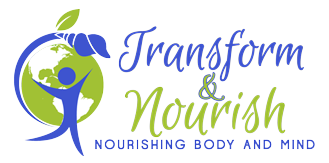Back in the days of early motherhood, when I had yet to find my voice in matters of child rearing, I was invited to a gathering of neighborhood moms for coffee.
As our children ran around working havoc with the toys in the rumpus room, appropriately named, we shared some of our own explorations into the world of caring for those who cannot yet care for themselves.
One particular mother, completely self-assured and expressionless, told the rest of us with some pride that when there was a thunderstorm she would not let her very young children into the master bedroom. She said the master bedroom was not for children. One morning, after a very loud overnight thunderstorm, she found her youngest outside her bedroom door, huddled without a blanket, shivering, but asleep. She told her story with a certain amount of pride, as if her word was law, and not to be challenged.
I wish I had spoken up at the time, but chose silence, probably because I was not so sure of my own abilities on this my first, and, as it turns out, only child. But even with my insecurities regarding my parenting skills I was pretty sure I would not let my child cry himself or herself to sleep while shuddering outside my bedroom door. There would be no place in my world kept so sacrosanct I would forbid entrance of a frightened, shivering child.
I have always been a big proponent of the family bed, a place of sanctuary and comfort.
Of course I realize the mother with the metaphorical bar on the bedroom door meant to grow strong children who could take care of themselves. That goal, though laudable, could have the opposite effect, creating children who grow to adulthood viewing the world as a frightening place in which they are out in the cold with nowhere to turn.
The trouble with all this is, how do you know which mothering instinct is the correct one until the child has grown into adulthood? Which premise is worse? Raising a child who knows he’s loved, but perhaps coddled a bit too much? Or raise a child without comforting in times of stress in order to grow steel strong, but with some neuroses for lack of a hug and reassurance at a young age. Of course by the time parents know for sure the success of the nurturing course taken it is too late to correct any false theory. The child is grown to adulthood and his child-raising concepts will be applied to the next generation, likely determined by his own childhood experience. If he felt terror during thunderstorms outside a locked bedroom door, which way of parenting will he choose?
Since I made my choice years ago, it is long past my ability to change the outcome for my offspring. But, based on how my son has grown into a sturdy young man, away at college with no homesickness and strong desires to move half a country away upon graduation, I don’t think letting him snuggle down between Mom and Dad in the Big Bed after a bad dream or a thunder clap has hurt him in any way. I wonder how the shivering child outside my neighbor’s bedroom door is doing now.


Love this blog! It is tough to admit when we don’t have all the answers; especially when the subject is parenting. We do the best we can and hope for the best. For what it’s worth, both of our kids were allowed in our bedroom during storms, nightmares, and tummy aches, and while I’m sure they still ended up with some “issues” (who didn’t?), I can proudly say that they are now independent and completely able to stand on their own two feet! Which makes me confident that for everything I did “wrong” I also did a few things right!
Thanks, Lisa. I’m sure we’ll all have moments we recall the great decisions, and those we wish we could go back and tweek a bit. I’m glad our kids seem to be going in right directions.